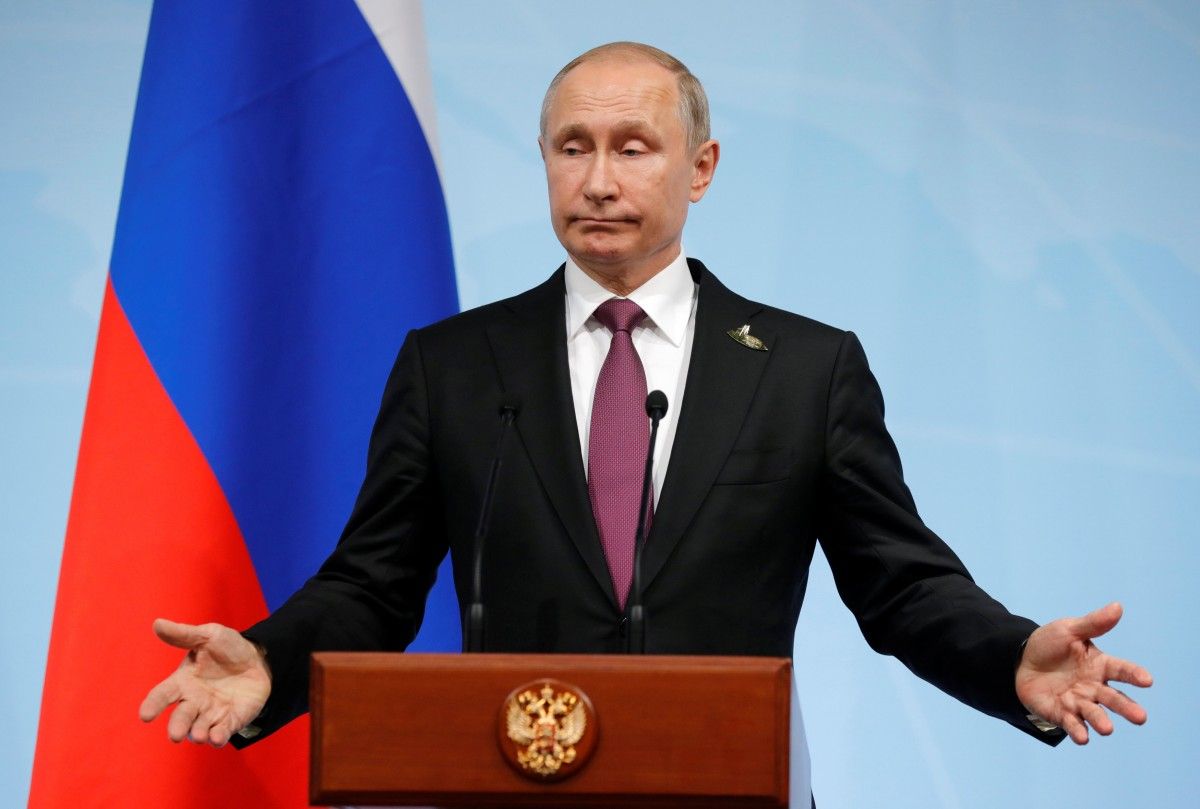
However, key Putin aide and curator of Ukraine talks Vladislav Surkov called it a way of sparking debate within Ukraine while emphasizing that Donbas is not fighting to separate from Ukraine but for the country’s future, reads the article on the Atlantic Council site.
“Kyiv wants a pro-European utopia,” he commented. “The Donbas responds with Malorossiya.”
Read alsoDonbas militant boss reverses on earlier "Malorossiya" announcementRussian President Vladimir Putin voiced similarly optimistic sentiments during the July G20 summit in Hamburg, where he accused the Ukrainian leadership of “trading in Russophobia” and blamed a handful of Kyiv politicians for driving an artificial wedge between Russia and Ukraine. “I am absolutely convinced the interests of Ukraine and Russia, of the Ukrainian and Russian people, fully match,” he claimed, before accusing the West of preventing Ukraine and Russia from moving closer together “at any cost.”
These developments provide insight into Moscow’s apparent delusions over the catastrophic loss of Russian influence in Ukraine since 2014. The Kremlin clings to the idea that a silent majority of pro-Russian Ukrainians lies ready and waiting, poised to take over the reins in Kyiv at the right moment and steer Ukraine back into the Kremlin orbit.
However, although Putin refuses to admit it, the sun is setting on centuries of Russian pre-eminence in Ukraine, and he has only himself to blame.
When historians look back at the collapse of Russia-Ukraine relations, they will likely pinpoint the invasion of Crimea as the decisive moment. The 2014 military takeover of Ukraine’s southern peninsula and the subsequent Kremlin-led hybrid war in the east have forced Ukrainians into a fundamental reassessment of their attitudes toward Russia.
On a personal level, the impact has been particularly painful. Thousands of extended families living on both sides of the border are no longer on speaking terms. Lifelong friendships have fallen victim to the polarization of propaganda.
On the national level, survey after survey has reflected a massive shift in Ukrainian public opinion. Formerly solid support for closer ties with Russia has evaporated, while membership of the European Union and NATO have become increasingly appealing.
Read alsoAnother flare-up in Donbas: Ukraine reports 3 KIA, 9 WIAOne of the key problems facing the Kremlin in Ukraine is the loss a pro-Russian electorate. This electorate now finds itself disenfranchised by Putin’s hybrid war. With almost two million internally displaced people currently experiencing different regions of Ukraine for the first time, the post-war political landscape in the Donbas is likely to be far more pluralistic.
Generationally, the clock is also ticking against any future Ukrainian return to the Russian orbit. Shared Soviet experience is foreign to the emerging generation of young Ukrainians. For them, the current conflict will serve as the definitive point of reference for all things Russian.
Beyond politics, Russia finds itself without many of the levers it traditionally used to maintain its position in Ukraine. The Ukrainian government’s ability to wean the country off its addiction to Russian gas has denied the Kremlin its weapon of choice, while Russia’s own embargo policies have robbed Moscow of the incentives inherent in blossoming bilateral trade.
Read alsoRussian reporter expelled from Ukraine, 3-year entry ban imposedRussia’s political and economic reach in Ukraine are both in freefall, but the greatest setback for the Kremlin has come in the soft power sphere. Until the outbreak of war in 2014, Ukrainians watched Russian TV channels and Russian-made sitcoms, Russian and Ukrainian celebrity worlds functioned as a single entity, so in this sense more than any other, Kremlin assertions that Ukraine was part of a wider “Russian world” were largely accurate.
Read alsoHague court starts to consider Naftogaz lawsuit vs Russia on seizure of assets in CrimeaOver the past three years, Ukraine has banned Russian TV channels and social media platforms, while Ukrainian channels face restrictions on the Russian-made content they can broadcast, and many Kremlin-friendly Russian pop stars are no longer welcome in Ukraine. The boundary between Russian and Ukrainian media landscapes is now clearer than ever, while the prevailing mood in Ukraine is encouraging more people to opt for homegrown media.
It is not difficult to imagine why Moscow is so reluctant to recognize the decisive decline of Russia’s position in Ukraine. Putin seeks to reassert Russia’s superpower status and the regional dominance lost during the 1990s. Losing control over Russia’s most important imperial outpost does not fit into this narrative.
Read alsoUkraine vs Russia case: ICJ determines schedule of proceedings until 2019Nevertheless, the odds appear stacked against any Russian revival in Ukraine. In the long term, the eclipse of Russian domination offers Ukraine the opportunity to reach its true potential as a sovereign nation.
“Russia may have lost the war of Ukrainian independence, but Ukraine has yet to win,” the author writes.

